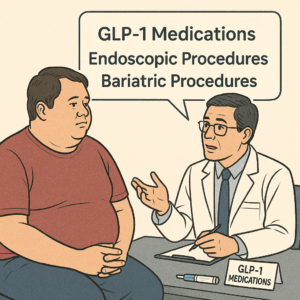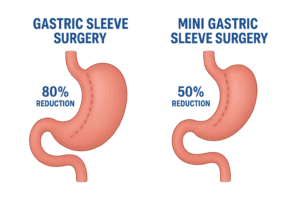Bariatric surgery of any form is a massive change to your body. It is not uncommon for people to feel numerous changes. One of the more common significant impacts is that of fatigue. Right after your procedure, you’ll feel exhausted from the medications and the toll on your body. After you begin to heal, the significant changes to your digestive system are likely to cause you to feel weary and tired.
There are a few things to know. First, know when your fatigue is a sign that you should speak to your doctor. Second, know that it isn’t likely to last, and you will likely see your energy levels improve, especially as you start to lose weight.
Types of Fatigue After Bariatric Surgery
Consider how your fatigue feels. How is it impacting your day and life? Here are some examples of the type of fatigue many bariatric surgery patients experience.
- Extreme fatigue that limits activities. This is often a sign that you should call your health professional. If your fatigue is ongoing for days, weeks, or even months, discuss this with your medical provider.
- Fatigue with other symptoms. Some people feel tired but they also have other symptoms of complications. That could include trouble focusing, persistent headaches, pain, muscle weakness, or fevers. These could be signs of addition medical needs, including the presence of an infection.
- Chronic fatigue and other conditions. For those who have thyroid disorders, diabetes, or autoimmune disease, the symptoms of those conditions can become more amplified when you have bariatric surgery. That could mean that you need to adjust medications or get help with those conditions.
- Sudden onset. Fatigue that suddenly shows up and becomes significant right away is an indication of the potential for health complications.
Causes of Fatigue After Bariatric Surgery
But why? Why do you feel this way, especially if you’re losing weight and want to get out there to enjoy life? Gastric sleeve surgery changes the function of your digestive system, but it also impacts virtually every other component of your body’s functions. Determining what this is means taking into account common concerns such as the following:
- Iron deficiencies: If you are not getting enough iron in your body, there is little production of red blood cells. Oxygen cannot be transported throughout your body effectively, especially to the brain. You may become anemic as well.
- Omega-3 fatty acid imbalances: The change in your diet could lead to an imbalance of omega-3 fatty acids. Your body uses these to help with heart and brain function and also to reduce inflammation.
- Vitamin D deficiency: This is another common cause of fatigue in people who have a sudden diet change or who may not be getting enough sunlight. You need Vitamin D to support immune function.
- Excessive sugar consumption: In some situations, this can be brought on by too many sugars in your diet, which can worsen conditions like type 2 diabetes and may also create an increased risk of dental problems leading to infections.
- Lack of calorie intake: For some people, the problem is brought on by not eating enough. Your body needs these and other nutrients from your food. If it doesn’t get it, it cannot work properly.
Other important nutrients that contribute to extreme fatigue when in limited supply include Vitamin B12, calcium, sodium and potassium imbalances, and iodine. Your doctor can pull blood work to get a better understanding of what’s occurring and why.
Fatigue After Gastric Sleeve Surgery
Gastric sleeve surgery is a procedure that leads to intense limitations on the amount of food a person can eat at one time. The question is, what type of food are you giving your body? If you are putting in nutrient-deficient foods that cannot support your brain, heart, and overall body’s needs, then that’s going to lead to a slowdown in cognitive function and other complications.
You may find that too little or too few good nutrients from bariatric surgery can lead to:
- Muscle weakness
- Insufficient fuel to meet bodily needs
- Nutrient deficiencies
- Metal fatigue
- Cognitive fund complications
Remedies for Fatigue
Your doctor may offer recommendations to help with medical problems that lead to extreme fatigue. Some types of treatment options that may help some people include:
- Improving the nutrient levels taken in on a daily basis. Less sugar and carbs and more vitamins and minerals.
- Investing in whole grains can help to provide a steady flow of energy.
- Improving fitness and exercise regimes to reduce overworking your body with too few calories.
- Hormone imbalance correction, especially if you have thyroid disorders.
- Treatment for medical complications like infections and inflammation.
- Improve sleep schedules to ensure you are getting enough sleep each night.
- Increasing the intake of specific nutrients.
Always consult your doctor if you feel different especially if it comes on suddenly. Fatigue is normal, but it shouldn’t last more than a few days and certainly should become less of a concern as your health improves over time.





